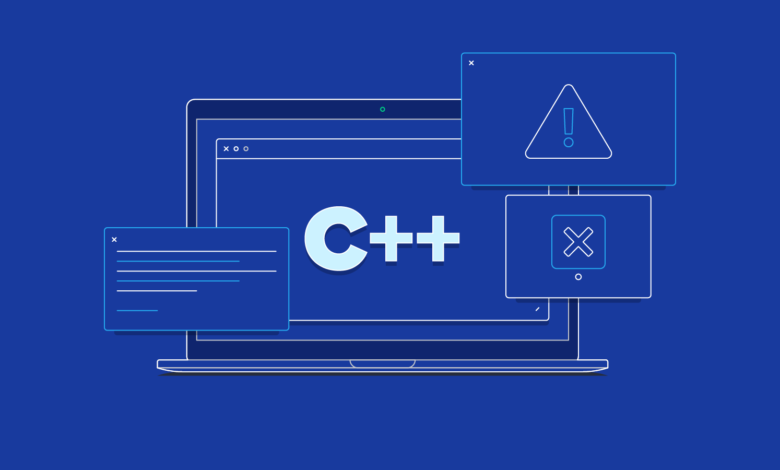
Turbo C++ is essentially a shut C++ compiler and coordinated improvement climate from Borland. It was planned as the home and specialist partner to Borland C++. As designers zeroed in more on proficient programming devices, later Turbo C++ items were made as downsized adaptations of its proficient compilers. To know more, visit techkorr.
Borland Turbo C++
Super C++ 1.0, running MS-DOS, was delivered in May 1990. An OS/2 adaptation was likewise created. Adaptation 1.01 was delivered on February 28, 1991, running on MS-DOS. The last option was fit for creating both COM and EXE programs and delivered with Borland’s Turbo Assembler for Intel x86 processors. An early variant of the Turbo C++ compiler depended toward the front created by Toumetric (later obtained by Sun Microsystems and their front end was remembered for Sun C++ 4.0, which delivered in 1994). . This compiler upheld the AT&T 2.0 arrival of C++.
Super C++ 3.0 was delivered on 20 November 1991 for Microsoft Windows in the midst of expectation of the impending arrival of Turbo C++. At first delivered as the MS-DOS compiler, 3.0 upheld C++ layouts, Borland’s inline constructing agent, and the age of MS-DOS mode executables for both 8086 genuine mode and 286 safeguarded mode (as well as 80186). 3.0 carried out AT&T C++ 2.1, which was the latest at that point. The different Turbo Assembler item was not generally included, yet inline-constructing agent could remain as a variation with less usefulness.
Soon after the arrival of Windows 3.0, Borland refreshed Turbo C++ to help Windows application improvement. The Turbo C++ 3.0 for Windows item was immediately trailed by Turbo C++ 3.1.
It is conceivable that the leap from rendition 1.x to form 3.x was mostly an endeavor to connect Turbo C++ discharge numbers with Microsoft Windows variants; However, all things considered, this jump was essentially to synchronize Turbo C and Turbo C++, as Turbo C 2.0 (1989) and Turbo C++ 1.0 (1990) emerged at generally a similar time, and Next Generation 3.0 was a consolidation. of both C and C++ compilers.
Beginning with form 3.0, Borland split its C++ compiler into two separate product offerings: “Super C++” and “Borland C++”. Super C++ was advertised towards the specialist and section level compiler market, while Borland C++ designated the expert application improvement market. Borland C++ incorporated extra apparatuses, compiler code-enhancement, and documentation to address the issues of business designers. Super C++ 3.0 can be overhauled with discrete additional items, for example, Turbo Assembler and Turbo Vision 1.0.
Super C++ 4.0 was delivered in November 1993 and is eminent (in addition to other things) for its solid help of layouts. Specifically, Borland was instrumental in fostering the main high level uses of the C++4 standard layout library, articulation formats, and format metaprogramming. With the progress of the item Borland Delphi created by Pascal, Borland quit working on its Borland C++ suite and zeroed in on C++ Builder for Windows. C++Builder shared Delphi’s front-end application structure however held the Borland C++ back-end compiler. Dynamic improvement on Borland C++/Turbo C++ was suspended until 2006 (see underneath.)
Super C++ 4.5 was declared on March 20, 1995. New highlights incorporate media QuickTour, five new games (Turbo Meteor (a space rock like game), Turbo Block, Turbo Cribbage, Turbo 21, Turbo Mah Jong). It incorporates ObjectWindows Library (OWL) 2.5, AppExpert, ClassExpert, Object Components Framework. You should also know about java vs javascript.
Borland Japan Turbo C++
Adaptation 4.0J backings DOS for PC-9801 and PC/AT (DOS/V). It incorporates Turbo Debugger 4.0. The IDE utilizes XMS memory. Project Manager upholds connecting of OBJ/LIB libraries and mix with Turbo Assembler 4.0J.
Adaptation 5.0J was declared on 1996-07-23. In light of Borland C++ 5.0J, this form incorporates an IDE that upholds Windows 95 and NT 3.51, and can order 16-digit programming. It incorporates the ObjectWindows Library 5.0, the Borland Database Engine, and the Visual Database Tools.
Super C++ 2006
It is the single language rendition of Borland Developer Studio 2006 for the C++ language, initially reported in 2006-08-06, and later that very year on 2006-09-05 as Turbo Explorer and Turbo Professional versions. was given with. The Explorer Edition was allowed to download and disseminate while the Professional Edition was a business item.
In October 2009 Embarcadero Technologies stopped help for all Turbo C++ 2006 renditions. Thusly, the Explorer Edition is as of now not accessible for download and the Professional Edition is at this point not accessible for buy from Embarcadero Technologies. Super C++ 2006 was prevailed by C++Builder 2007 preceding Embarcadero gained CodeGear and dropped help, and the authority Turbo C++ 2006 page has since diverted a guest to C++Builder 2010 .




